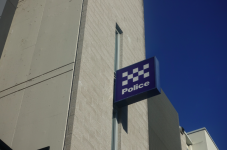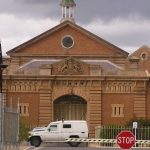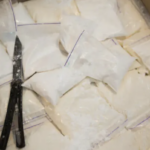Police Accused of Altering Crime Statistics

Two high-ranking Gold Coast crime managers have raised concerns that crime statistics are being manipulated by the police service in an effort to keep crimes and complaints from being recorded.
The officers have reported that complaints against police and legitimate crime reports are being labelled “unfounded”, to make it appear the public is complaining less and that police are keeping a check on crime.
They have also alleged that reports are being falsely dismissed under the category of “bar to prosecution”, which would occur if, for example, police could not progress an investigation because the alleged offender has left the country.
The Queensland Police Service (QPS) confirmed this week that it will be collaborating with the Queensland Audit Office to prepare a report on the police statistical collection processes.
Police response
The whistleblowers say they previously voiced their concerns with a superior officer, who took no action. It was only then that they decided to contact the audit office.
In response to the auditor-general’s investigation, the QPS Ethical Standards Command is now looking into the allegations.
Police Minister Mark Ryan says he has been assured by the Police Commissioner that processes have been implemented to uncover the reasons for any discrepancies, and to ensure the recording of data is accurate.
Political response
Mr Ryan said Queenslanders must be able to have faith in crime statistics. “I expect the highest standards to be met and maintained by the Queensland Police Service from the top of the organisation down,” he said.
Before the last election, Labor assured the public that it would establish an independent body to manage Queensland’s crime statistics. However the promise not been fulfilled, with Premier Annastacia Palaszczuk remarking “The minister is working on that”, when asked why the measure has still not been implemented after two years.
Queensland Opposition Leader Tim Nicholls said he had written to the state’s auditor-general requesting an inquiry into the allegations made by the whistleblowers. “Crime in Queensland is already on the increase. We just need to know the figures are not being fudged,” Mr Nicholls said. “We publish figures quarterly, this is a Labor policy, they should be held to account.”
In NSW, the Bureau of Crime Statistics and Research (BOCSAR) independently gathers crime statistics, increasing the likelihood of reported data being accurate.
Statistical integrity
The 2016 QPS crime figures suggest that rates of assault, fraud, robbery and unlawful entry on the Gold Coast have risen slightly over the previous year.
But Bond University criminologist Terry Goldsworthy told the Gold Coast Bulletin that the coast’s crime rates had risen by much more than reported by police – up to 17 per cent over the past two years.
The discrepancy raises questions about the integrity of data released by the QPS.
Public confidence
The reports are another blow for a police service that has been the subject of multiple complaints of corruption and brutality in recent times.
It adds to public concern that police officers consider themselves ‘above the law’, especially given that the vast majority of complaints are investigated by members of the service, rather than an independent investigatory body, with only a very small percentage resulting in any disciplinary action.
Like many others, former police officer Nigel Powell – a key whistleblower in the Fitzgerald Inquiry into police corruption – believes existing regimes of police policing themselves are fundamentally flawed and contribute to the public’s lack of faith in police services across Australia.
And civil rights crusader Terry O’Gorman argues there is “a serious necessity” to overhaul the internal discipline system. “There needs to be an independent review of how police are operating,” he remarked.







